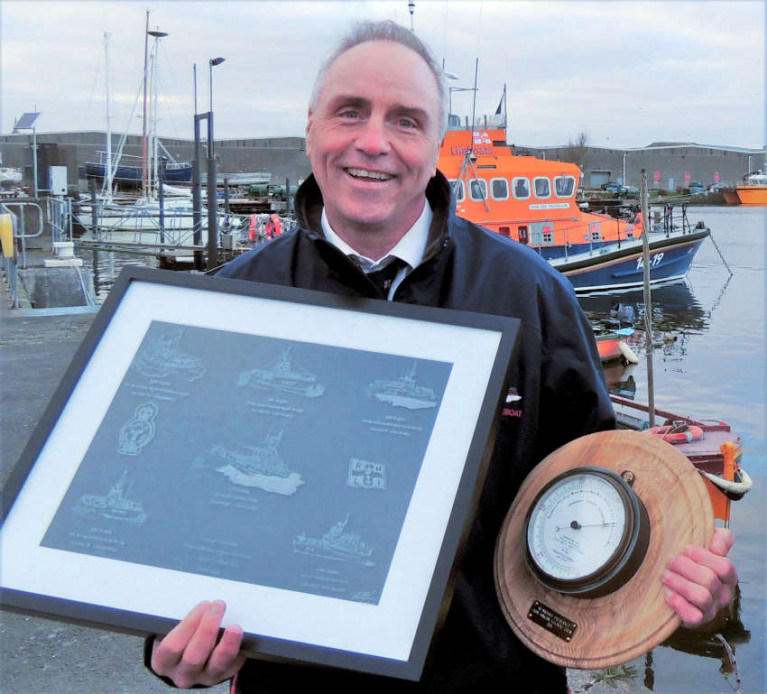Arklow RNLI marked the end of an era last Friday 5 March when Michael Fitzgerald, the station’s full-time mechanic retired after 40 years of dedicated service to the charity.
Michael, who grew up on Harbour Road in Arklow, first joined the RNLI in 1980 when he was just 16. At the time, the station had a wooden lifeboat.
It was his uncle, also Michael, a second mechanic on the crew, who inspired the then young Michael with a love for all things lifeboating.
While not eligible to officially join the crew until he was 17, Michael’s early passion shone through and to his delight, his name was registered a year early when the late coxswain Michael O’Brien made a plea on his behalf during a station inspection.
A former electrician, Michael volunteered for 19 years before being appointed Arklow RNLI’s full-time station mechanic, a position he held for the last 21 years.
His role involved a wide range of duties and evolved with time, with Michael serving on and maintaining six different classes of lifeboat including the station’s current all-weather Trent class lifeboat, the Ger Tigchlearr, which arrived in 1997. Michael was also a key member of the team when the call for help came and the lifeboat was put to sea.
‘A man of humility, integrity and passion, he has made a significant contribution to saving lives at sea off the Arklow coast’
Paying tribute to Michael this week, Peter Harty, RNLI area lifesaving manager, said: “Michael is the living embodiment of the RNLI’s values.
“A man of humility, integrity and passion, he has made a significant contribution to saving lives at sea off the Arklow coast for more than four decades and we are extremely grateful to him for his dedication and selfless service throughout that time.
“Thankfully, Michael will not be lost to us as he will remain on as a volunteer mechanic but we want to wish him every good health and happiness in the next chapter of his life.”
John Tyrell, Arklow RNLI lifeboat operations manager, added: “Over the course of four decades, Michael has worked tirelessly to ensure the operational effectiveness of our station here in Arklow through the operation, maintenance and repair of our lifeboat and its associated machinery and equipment.
“He always ensured everything was working to the highest standard and he did so with great passion and pride. Michael’s passion for his role extended to his ability to impart his knowledge to others.
“Over the years Michael has experienced all sorts of callouts and braved all sorts of weather and challenges at sea to help bring those in difficulty to safety.
“A humble man and a friend to all, Michael has always been at the core of our lifesaving team, working to keep our lifeboats and our crews safe and we are so thankful to him for that.”































































